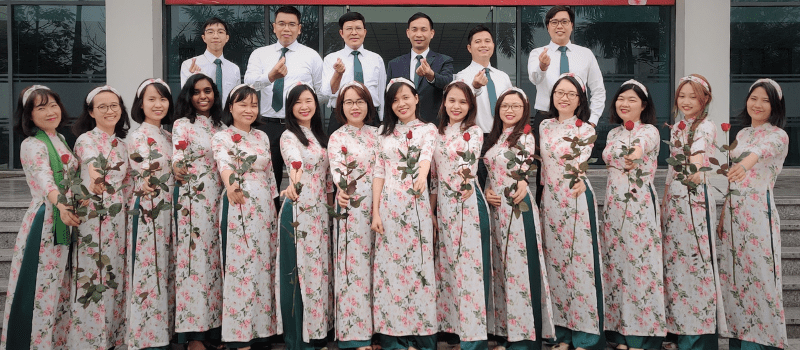This blog was contributed by Maureen Tanyai, a VWB/VSF volunteer.
Women make up nearly half of all farmers in Kenya, or possibly more, and yet so many women still do not have access to, or control over, resources and services. Often, they live in fear of gender-based violence (GBV) and have no say over decisions in their homes.
Gender equality and women’s empowerment are essential for agricultural programs to be effective and to achieve the best outcomes. Through Veterinarians Without Borders/Vétérinaires Sans Frontières' VETS program, the volunteer gender specialists have worked worked closely with staff in Mukurwe-ini Wakulima Dairy Co. Ltd. (MWDL) to build gender capacity and its relation to dairy farming, as well gender sensitivity in the workplace. We have also conducted trainings with farmers that discuss the importance of having good gender relations in regards to the care and management of dairy farming.
 Kimani, an extension officer at Mukurwe-ini Wakulima Dairy Limited, conducting a group training with small scale farmers .
Kimani, an extension officer at Mukurwe-ini Wakulima Dairy Limited, conducting a group training with small scale farmers .
“The gender trainings on dairy farms have made our work easier," said an extension officer from the Mukurwer-ini Wakulima Dairy Ltd. They added: "We can now see couples working together, which means the implementation of knowledge and skills we train farmers in is more effective. We have had cases where a woman cannot make any changes in the farm unless the husband approves; we have also experienced cases where a wife and a husband milk two teats each because they are not on good terms as well as women who have no access to earnings from milk sales. Gender training has brought positive changes in dairy farming, and we are seeing couple making decisions jointly.”
Another extension officer added that, for them, gender trainings have brought positive changes to couple farmers who are working together. "Even as we register new farmers, couples are opening joint accounts where both can access their earnings," this extension officer added. "Before this training, we’ve had cases where a wife would to come to our offices complaining that the husband takes all the money, or vice versa when the wife is the account holder. Through this training, we see change is happening," they said.
“In our previous farm visits, you would often just have training sessions with the wife, but now in the scenarios where both the husband and wife are at home, they will join you to listen in," added another extension officer.
Through VWB/VSF's gender equality training, farmers are gaining an understanding of how gender affects their dairy farming; many are also acknowledging that if couples involved in dairy are not working together, the farm will not do well.
“The gender equality and sensitivity training has been insightful," added a staff member at MWDL. "I now understand gender better, as well the different types and forms of harassment, especially sexual harassment. I didn’t know about economic violence as a form of gender-based violence, but now I know” added the staff member.
Another MWDL team member said: “We've also gotten to know the company's policy on sexual harassment, and through the training, we’ve also learned about the reporting procedure."
Having VWB/VSF's VETs program, generously funded by Global Affairs Canada, factor in gender training is not only bringing significant change in dairy farming, but also in society as whole. More people are understanding the negative effects of gender inequality, therefore becoming champions of promoting a gender equal society that values and respects all.
Interested in volunteering abroad with VWB/VSF? Learn about our current opportunities.




